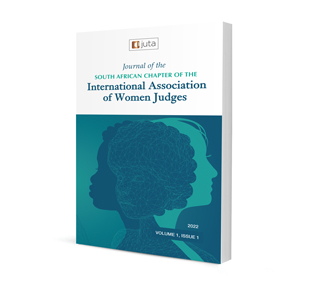Abstract
Godsdiensvryheid word in Indië, onderhewig aan bepaalde beperkings soos openbare orde, sedelikheid en gesondheid, grondwetlik beskerm. Die ryk kulturele samestelling van die Indiese gemeenskap, deurtrek van ’n menigte godsdienstige gelowe en praktyke, het aanleiding gegee tot kommer dat sekulêre aangeleenthede wat met godsdienstige praktyke geassosieer kan word, nie van regulering deur die staat vrygestel moet word nie. Die uitdrukking “wesenlik godsdienstig”, wat bedoel was om die sekulêre van die godsdienstige aangeleenthede te onderskei, moes die basis vorm vir wat bekend sou word as die noodsaaklike godsdiensbeoefeningstoets. Die Indiese hooggeregshof is die beskermheer van die grondwet. Ten spyte daarvan dat dit geen regsplegingsmagte ten opsigte van sosio-ekonomiese regte het nie, het die hof die voormelde oor die jare afgedwing, en daardeur bygedra tot maatskaplike hervormings. Aanvanklik aangewend as “wesenlik godsdienstig”, was die toets later toegepas as “noodsaaklik vir godsdiens”. Toepassing van die toets deur die howe het in sekere gevalle ook bygedra tot verskeie sosiale hervormings, alhoewel die legitimiteit van die toets steeds ’n bron van onsekerheid is. In watter vorm ook al toegepas, bevraagteken dit die nimlike basis waarop die howe – as beskermers van die grondwetlike reg op godsdiensvryheid – wettig ’n teologiese of kerklike rol kan aanvaar deur aan hulself die mag, kundigheid en wysheid toe te eien om te besluit wát wel deel behoort te vorm van ’n godsdienstige geloof en oortuiging, en wat ’n noodsaaklike of nie-noodsaaklike gebruik van ’n sekere godsdiens is. Godsdienstige oortuigings en gelowe is subjektief van aard. Hulle kan vreemd, onlogies, irrasioneel, onrealisties of selfs bygelowig wees. Tensy in stryd met ander fundamentele menseregte, verdien dit grondwetlike beskerming. Die grondslag waarop ’n hof voorgee om irrasionele verskynsels te beoordeel deur sy eie siening op die geval af te dwing met verwysing na rasionele beginsels, letterkundige en skriftuurlike bronne, laat ruimte om die regsgeldigheid van howe en hul betrokkenheid by leerstellige aangeleenthede te bevraagteken.

